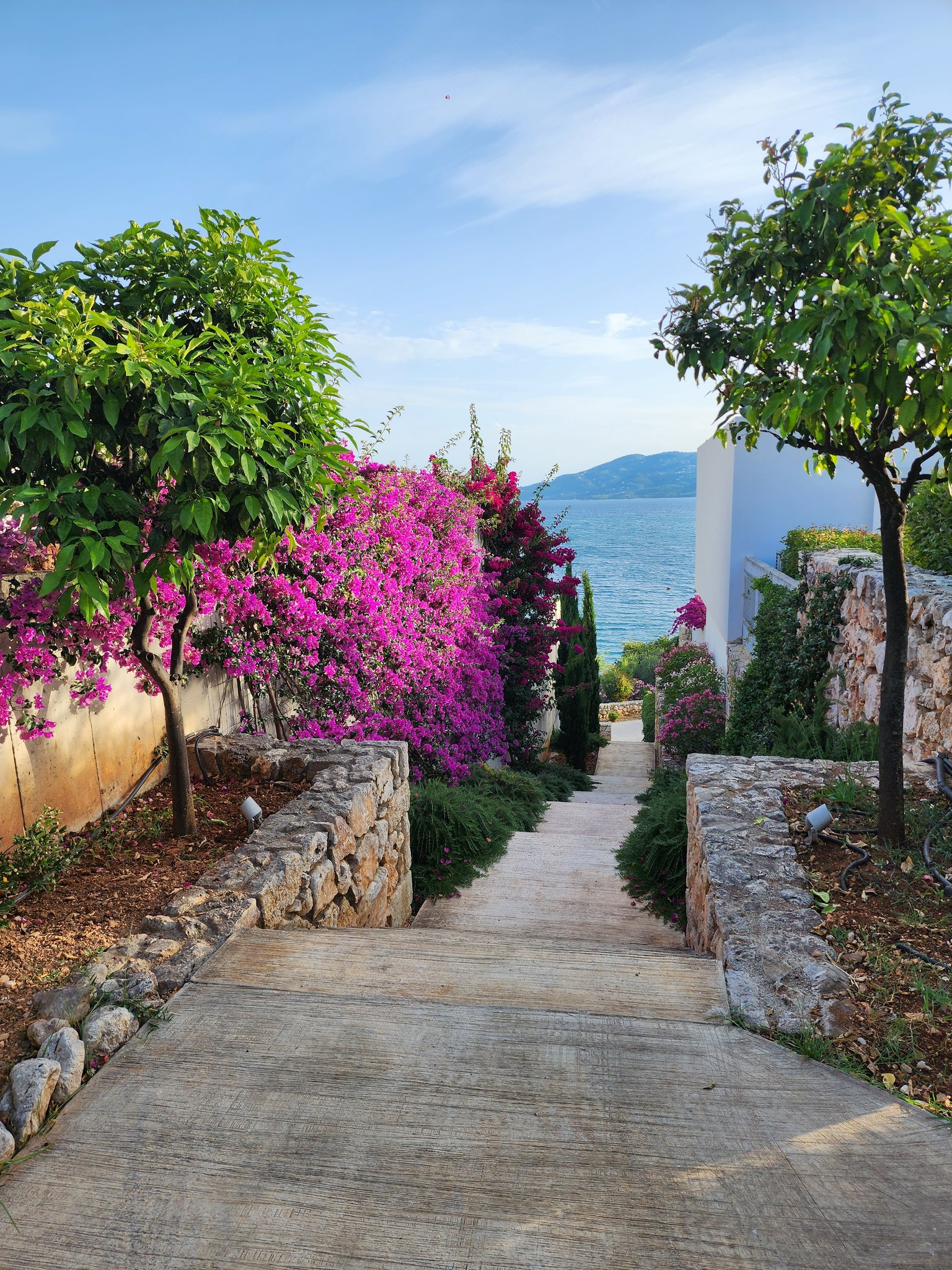The Mediterranean is a region renowned for its timeless beauty, where the sun-drenched landscapes, azure waters, and vibrant flora come together to create a paradise on Earth. Among the many plants that flourish in this unique climate, the bougainvillea stands out as one of the most striking and beloved. With its cascading vines and explosion of vivid colors, the bougainvillea has become a symbol of Mediterranean charm, gracing gardens, patios, and streets with its lively presence.
Originally hailing from the tropical regions of South America, the bougainvillea has found a second home in the Mediterranean basin. Its ability to thrive in hot, dry conditions makes it perfectly suited to the region’s climate, where it often takes center stage in the picturesque coastal towns and countryside. Whether clinging to the walls of a whitewashed village in Greece, brightening the facades of Andalusian homes in Spain, or adding a burst of color to the terraces of southern Italy, the bougainvillea is an integral part of the Mediterranean landscape.
More than just a plant, the bougainvillea embodies the spirit of the Mediterranean: resilient, vibrant, and full of life. Its presence is a reminder of the region’s enduring allure, where nature and human culture have intertwined for centuries to create a unique and enchanting environment.
Wondering how to get your bougainvillea to bloom all season long? This guide covers everything you need—sunlight, pruning, watering, and more.
Table of Contents
A Riot of Colors
Bougainvilleas are loved for their strikingly vivid bracts, often mistaken for flowers. These bracts come in a variety of colors—deep magenta, fiery orange, brilliant white, and soft pink—creating a spectacular visual display against the backdrop of the blue Mediterranean sky. The actual flowers of the bougainvillea are small, white, and somewhat inconspicuous, surrounded by the colorful bracts that steal the show.
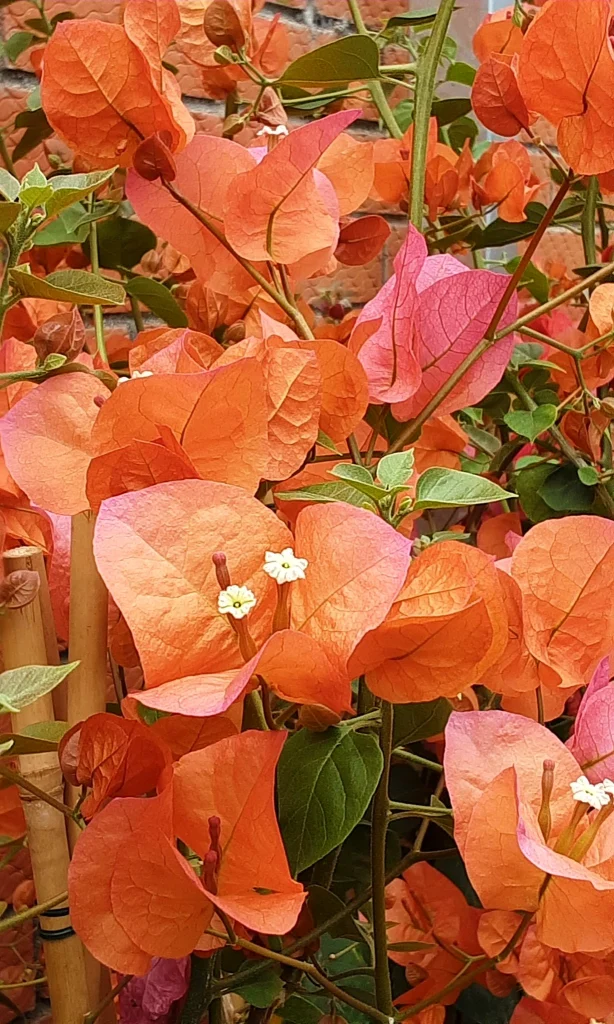
Perfect for the Mediterranean Climate
One of the reasons bougainvillea thrives in the Mediterranean is its ability to withstand high temperatures and direct sunlight. This hardy plant requires minimal water once established, making it ideal for the dry, hot summers typical of the region. It is also relatively low-maintenance, requiring just occasional pruning to keep its shape and encourage new growth.
How to Care for Bougainvillea: Step-by-Step
Is your bougainvillea full of leaves but no flowers? You’re not alone. This vibrant climber can be tricky—it needs the right stress, sun, and pruning to bloom properly. Below you’ll find exactly how to fix the most common bougainvillea problems and keep it flowering nonstop.
🌿 Bougainvillea Care at a Glance
- ☀️ Sunlight: Needs at least 6 hours of direct sun daily for strong blooms.
- 💧 Watering: Let soil dry completely between waterings. Overwatering stops flowering.
- ✂️ Pruning: Light trim during the season; hard prune in late winter or early spring.
- 🧪 Fertilizer: Monthly low-nitrogen, high-phosphorus formula to promote flowers, not leaves.
- ❄️ Cold: Protect from frost or move indoors in colder climates.
Lack of Flowers? It Might Be a Light Problem
Bougainvillea needs full sun—at least six hours of direct light per day. Without enough sunlight, you’ll get lots of green leaves but barely any flowers. This is one of the most common reasons bougainvilleas don’t bloom. If yours is in partial shade, consider moving it to a sunnier spot.
Overwatering: The #1 Reason Bougainvilleas Don’t Bloom
Too much water is a common mistake. Bougainvillea prefers a “soak and dry” routine. Let the soil dry out completely between waterings—especially in pots. Overwatering leads to soft growth and flower drop. Stress (in moderation) encourages blooming.
Wrong Timing? Pruning Can Make or Break Flowering
Pruning is key to more blooms. Trim lightly throughout the growing season to shape the plant and promote new flowering. For best results, do a harder prune in late winter or early spring. Cutting back at the right time triggers stronger, more colorful growth
Too Much Nitrogen? Here’s the Right Fertilizer
Bougainvilleas don’t need rich soil or heavy feeding. In fact, too much nitrogen will give you a leafy plant with no color. Use a low-nitrogen, high-phosphorus fertilizer once a month during spring and summer to stimulate flowering instead of foliage.
Cold Damage and How to Protect Your Bougainvillea
While bougainvillea thrives in warm Mediterranean climates, it’s not frost-tolerant. In areas with cold winters, grow it in a pot you can move indoors or protect it with fleece. Even a brief frost can set back blooming for months.
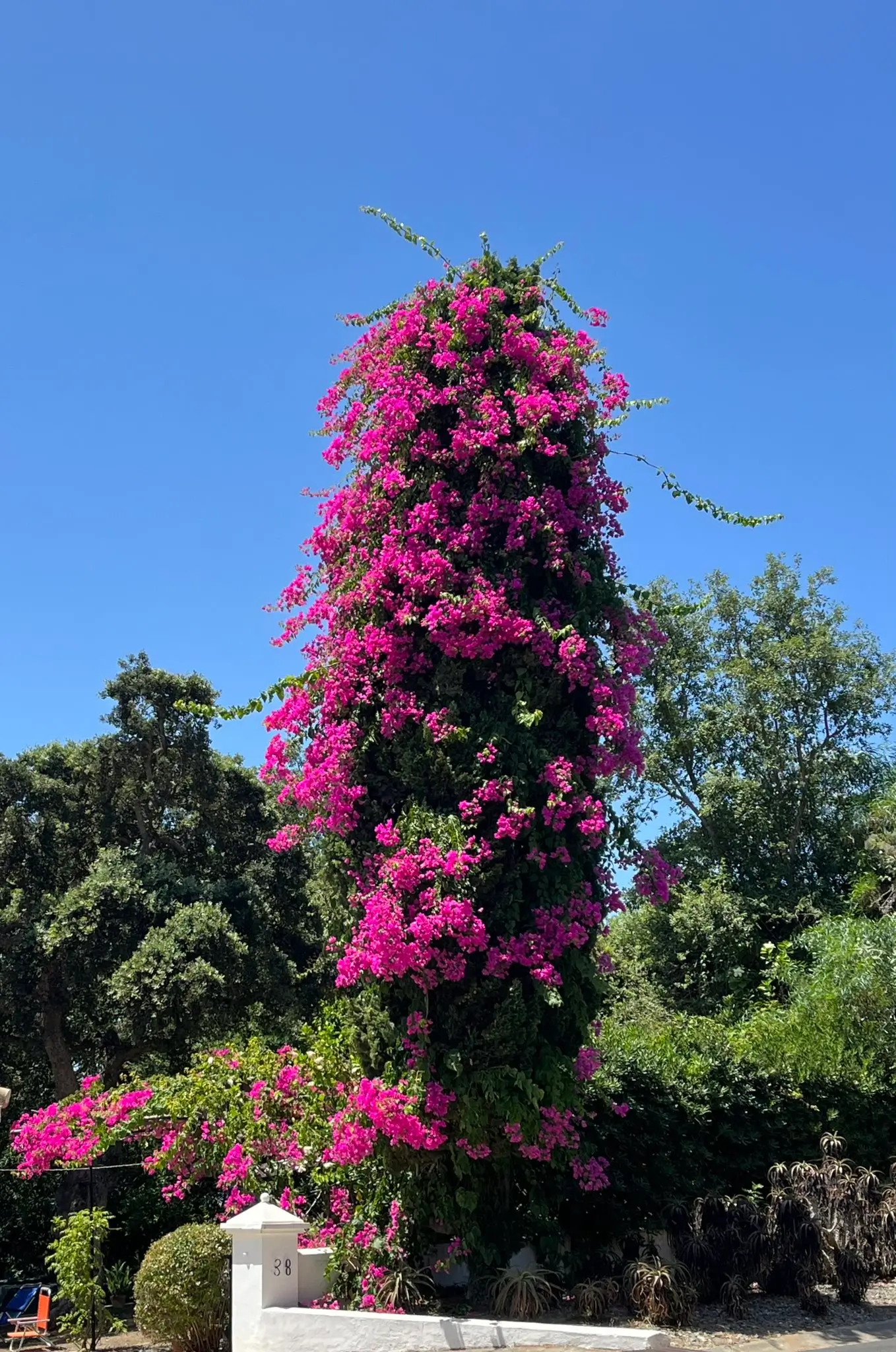
⚠️ Common Bougainvillea Mistakes to Avoid
- 🌥️ Not enough sun: Less than 6 hours of light means fewer or no blooms.
- 🚿 Overwatering: Leads to root rot and lots of leaves, but no flowers.
- 🌱 Too much fertilizer: Especially nitrogen-based ones—boosts green, not blooms.
- ✂️ Pruning at the wrong time: Cutting in mid-season may remove future flowers.
- ❄️ Leaving it unprotected in frost: Even light frost can severely damage the plant.
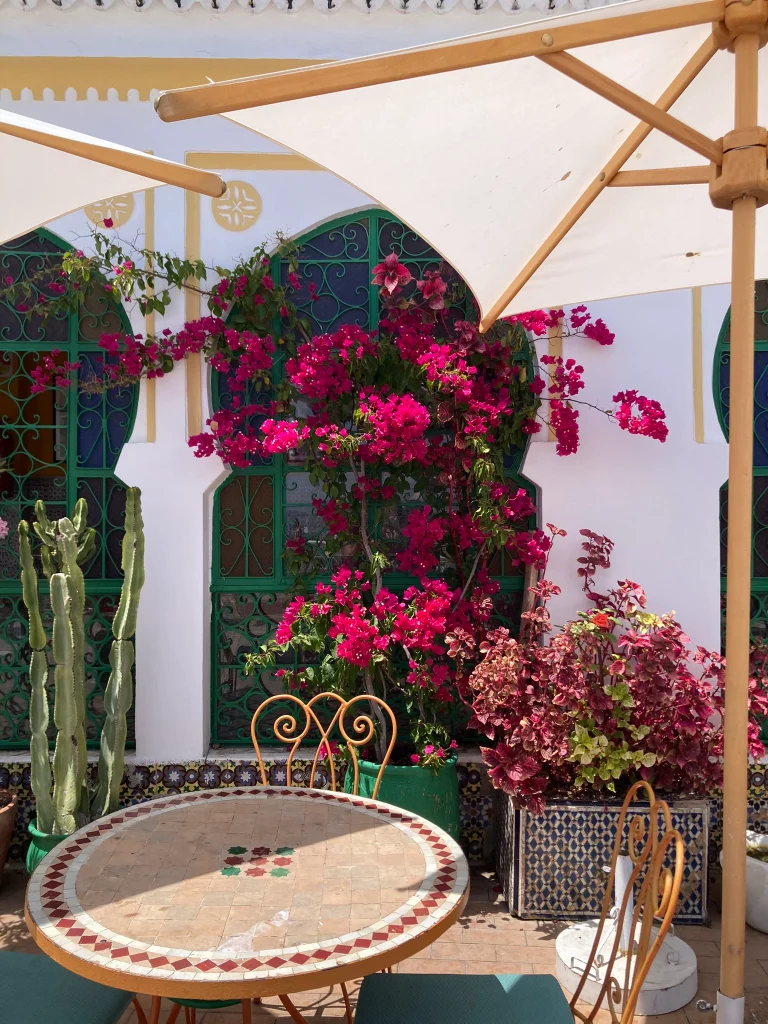
Versatility in the Garden
Bougainvillea is incredibly versatile and can be used in various ways in garden design. It can be trained to climb walls and trellises, creating a living tapestry of color. It also works well as a ground cover or in large containers. For those who prefer a more controlled look, bougainvillea can be pruned into a bush or even a bonsai.
A Symbol of Mediterranean Charm
Beyond its beauty, the bougainvillea has become a symbol of the Mediterranean way of life—vibrant, resilient, and ever-present. Whether cascading down a whitewashed wall in a Greek village or providing shade in a Spanish courtyard, this plant is a quintessential part of the region’s charm.
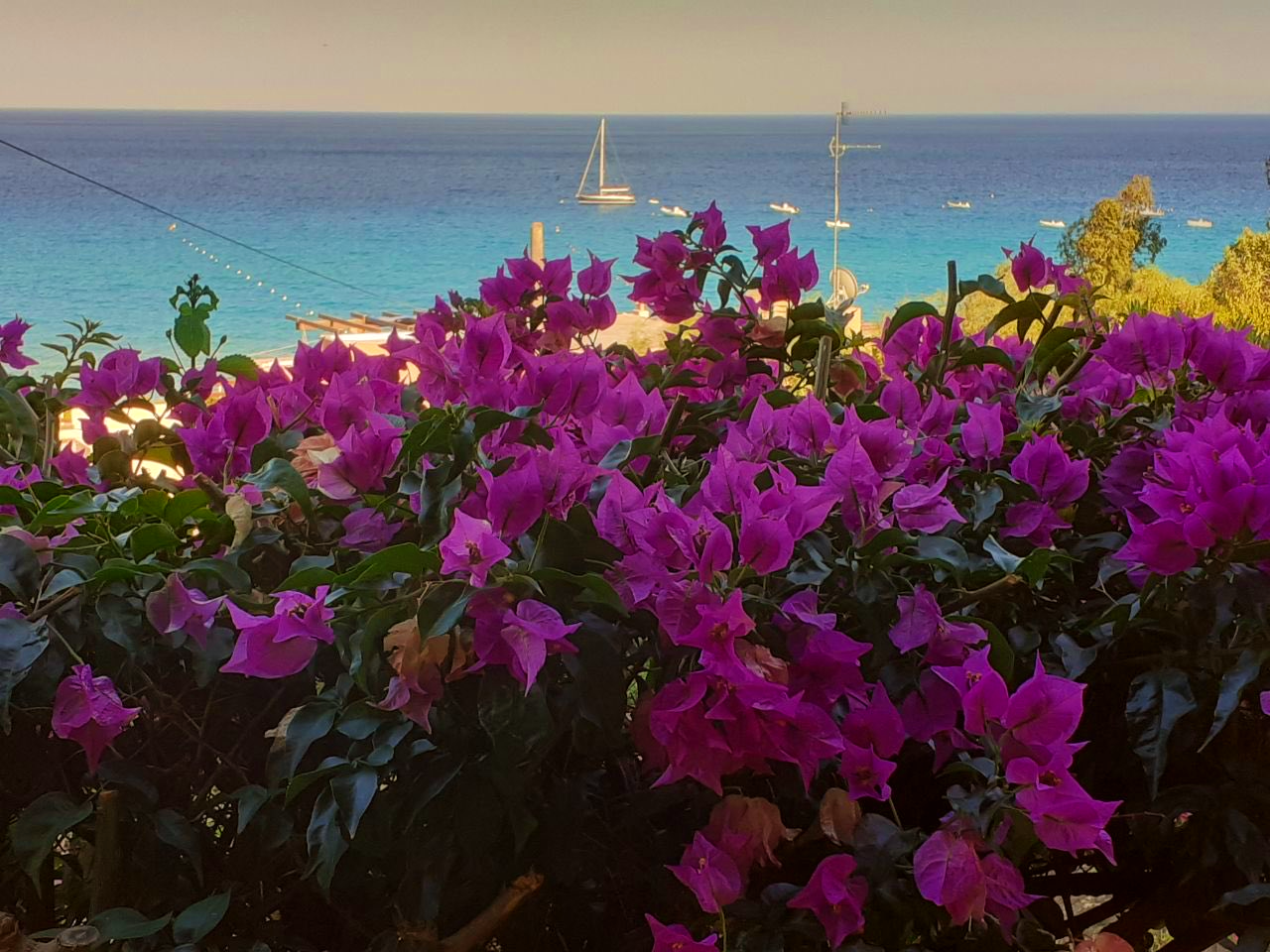
Jasmine: The Fragrant Twin of Bougainvillea
Just like bougainvillea brings vibrant color, jasmine fills Mediterranean evenings with its unmistakable scent. Discover more about jasmine →
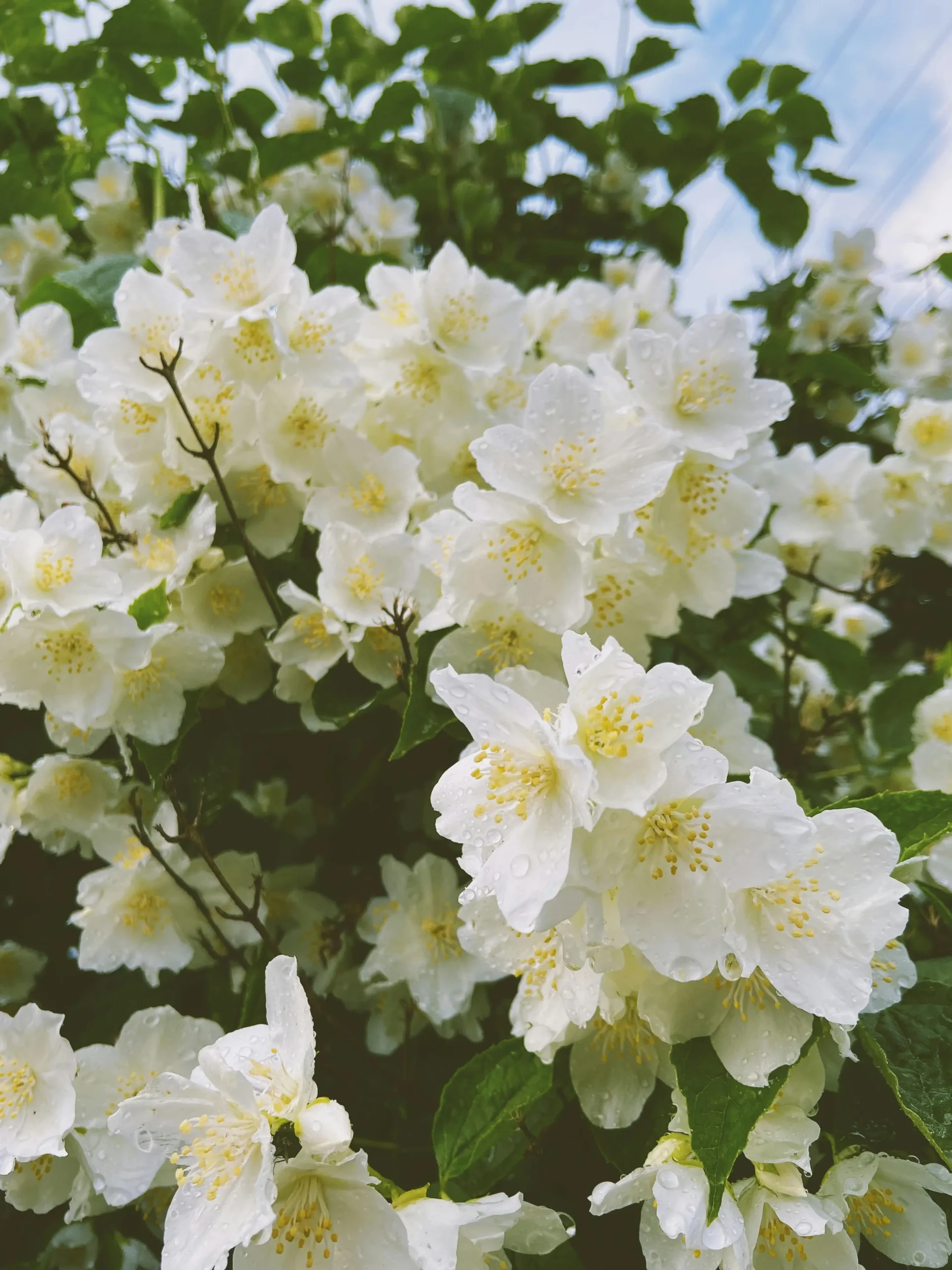
Across the Mediterranean: A Colorful Presence
Bougainvillea’s charm extends across several Mediterranean countries, where it has become a beloved element of the landscape. Here are three countries where this plant is particularly common:
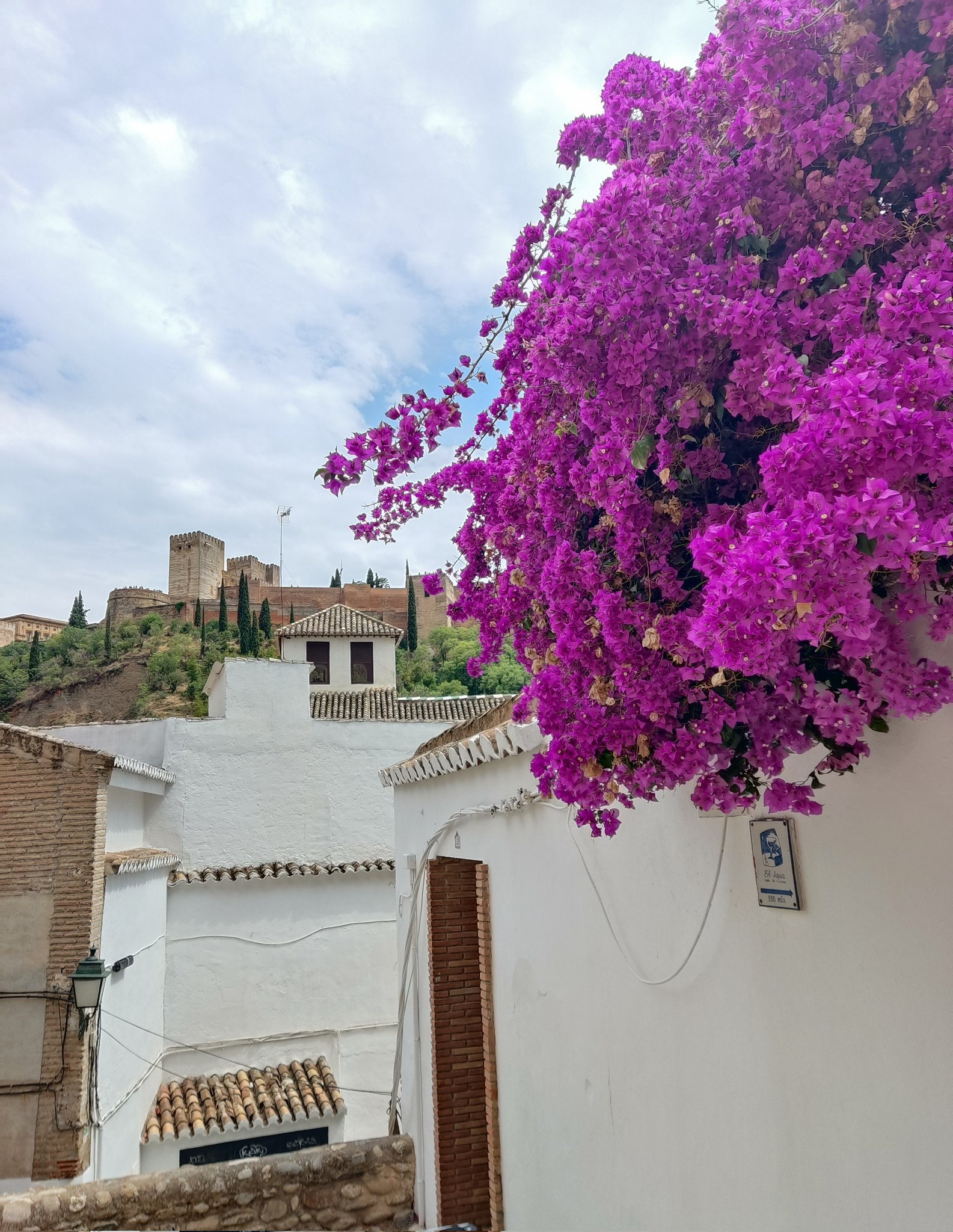
Spain: In Spain, bougainvillea is especially popular along the southern coast, such as in Andalusia and the Balearic Islands. Its vibrant colors adorn many facades of homes, public squares, and gardens, adding a lively touch to the warm Spanish climate.
Italy: In Italy, you’ll find bougainvillea flourishing in the coastal regions of the south, including Sicily, Calabria, and along the Amalfi Coast. These plants add bursts of color to narrow streets and terraces, enhancing the already stunning views of the Italian coastline.
Greece: In Greece, bougainvillea is almost synonymous with the Aegean islands, like Santorini and Mykonos. The bright bracts stand out beautifully against the traditional whitewashed buildings, creating a picture-perfect contrast that is quintessentially Greek.
The bougainvillea is more than just a plant; it is a celebration of the Mediterranean spirit. Its brilliant colors and adaptability make it a favorite in gardens across the region, bringing a touch of natural beauty to every corner it graces.
🌿 Discover More Climbing Beauties
Love bougainvillea? Don’t miss our guide on other stunning climbing plants perfect for Mediterranean gardens. Read it here »
Frequently Asked Questions About Bougainvillea
Can bougainvillea grow in pots?
Yes, bougainvillea grows well in pots. Just make sure it gets full sun, well-draining soil, and something to climb. Water it more often than in-ground plants.
How much sun does bougainvillea need to bloom?
Bougainvillea needs at least 6 hours of full sun each day to bloom with strong color and volume.
When to prune bougainvillea and how?
Prune bougainvillea in late winter or early spring. Light trimming during the season helps maintain shape and boost blooming.
Why won’t my bougainvillea bloom?
Bougainvillea often won’t bloom due to lack of sunlight, overwatering, or too much fertilizer. It needs stress, not comfort, to flower well.
How often should I water bougainvillea?
Water deeply but let the soil dry out between waterings. Overwatering is a common reason it stops blooming.
Can bougainvillea survive winter?
Bougainvillea is not frost-tolerant. In cold climates, grow it in a pot and bring it indoors, or cover it outside with fleece for protection.
What is the best soil for bougainvillea?
Bougainvillea thrives in well-draining, slightly acidic soil. Avoid heavy clay and always ensure good drainage in pots.
Bibliography
- Huxley, A., Griffiths, M., & Levy, M. (1992).The New Royal Horticultural Society Dictionary of Gardening. Macmillan Press.
- This book provides a comprehensive overview of horticulture, including details on the cultivation and care of bougainvillea in various climates.
- Brenzel, K. N. (Ed.). (2007).Sunset Western Garden Book. Sunset Publishing Corporation.
- An essential resource for gardeners, this book details plants that thrive in warm climates like the Mediterranean, including bougainvillea.
- Brickell, C. (2011).The Royal Horticultural Society Encyclopedia of Garden Plants. Dorling Kindersley.
- An exhaustive encyclopedia of garden plants, with information on bougainvillea and its adaptation to different environments.
- Valdés, B., & Talavera, S. (1987).Flora Vascular de Andalucía Occidental. Ketres Editora.
- This book focuses on the flora of Andalusia, a region in southern Spain where bougainvillea is especially common.
- Pignatti, S. (1982).Flora d’Italia. Edagricole.
- A key reference for Italian flora, including information on bougainvillea and other typical Mediterranean plants.
- Turner, M. (2010). “Bougainvillea: The Hardy Climber for Mediterranean Gardens.” Mediterranean Gardening Journal, 5(3), 15-22.
- An article in a specialized journal on Mediterranean gardening, exploring the characteristics and care of bougainvillea.
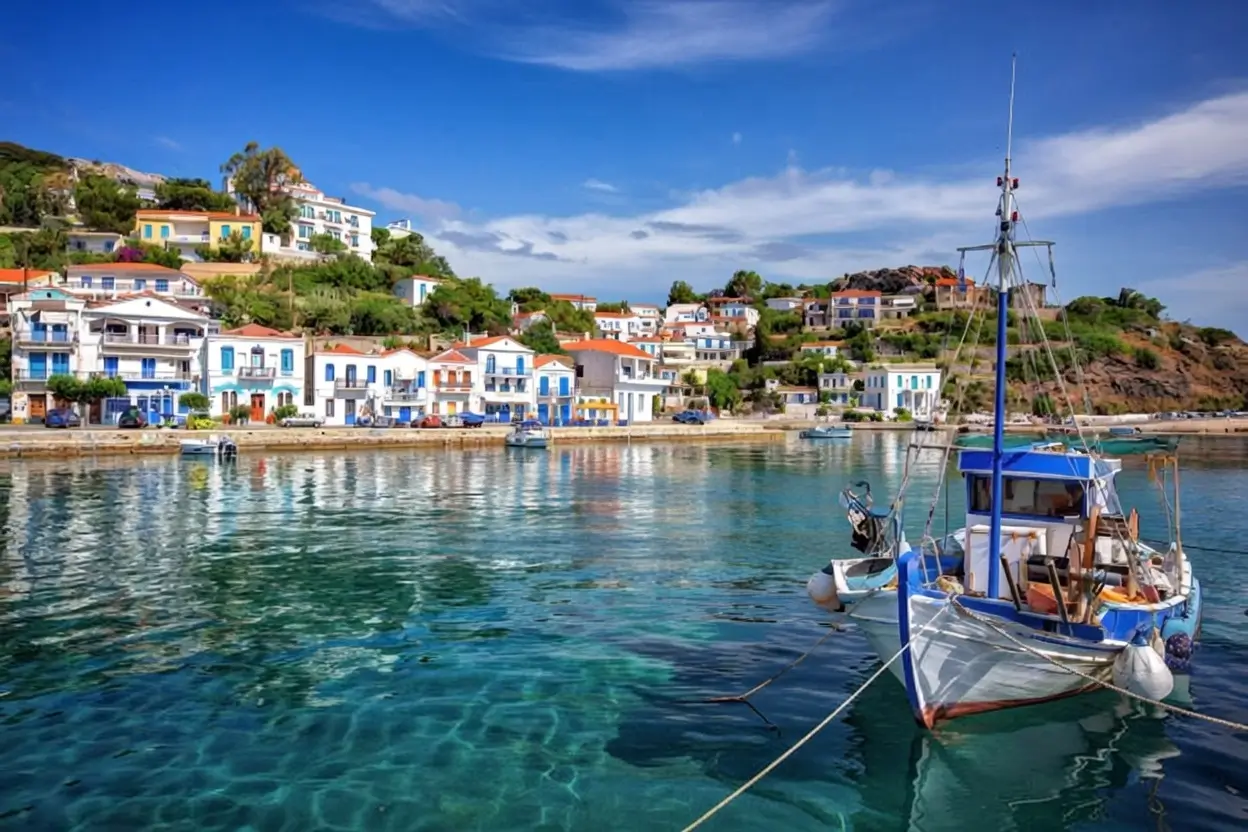
The Island That Forgot the Clock: How Ikaria’s Relationship With Time Creates Longevity

Spanish Latte Recipe: Mediterranean Coffee Tradition Meets Modern Café Culture
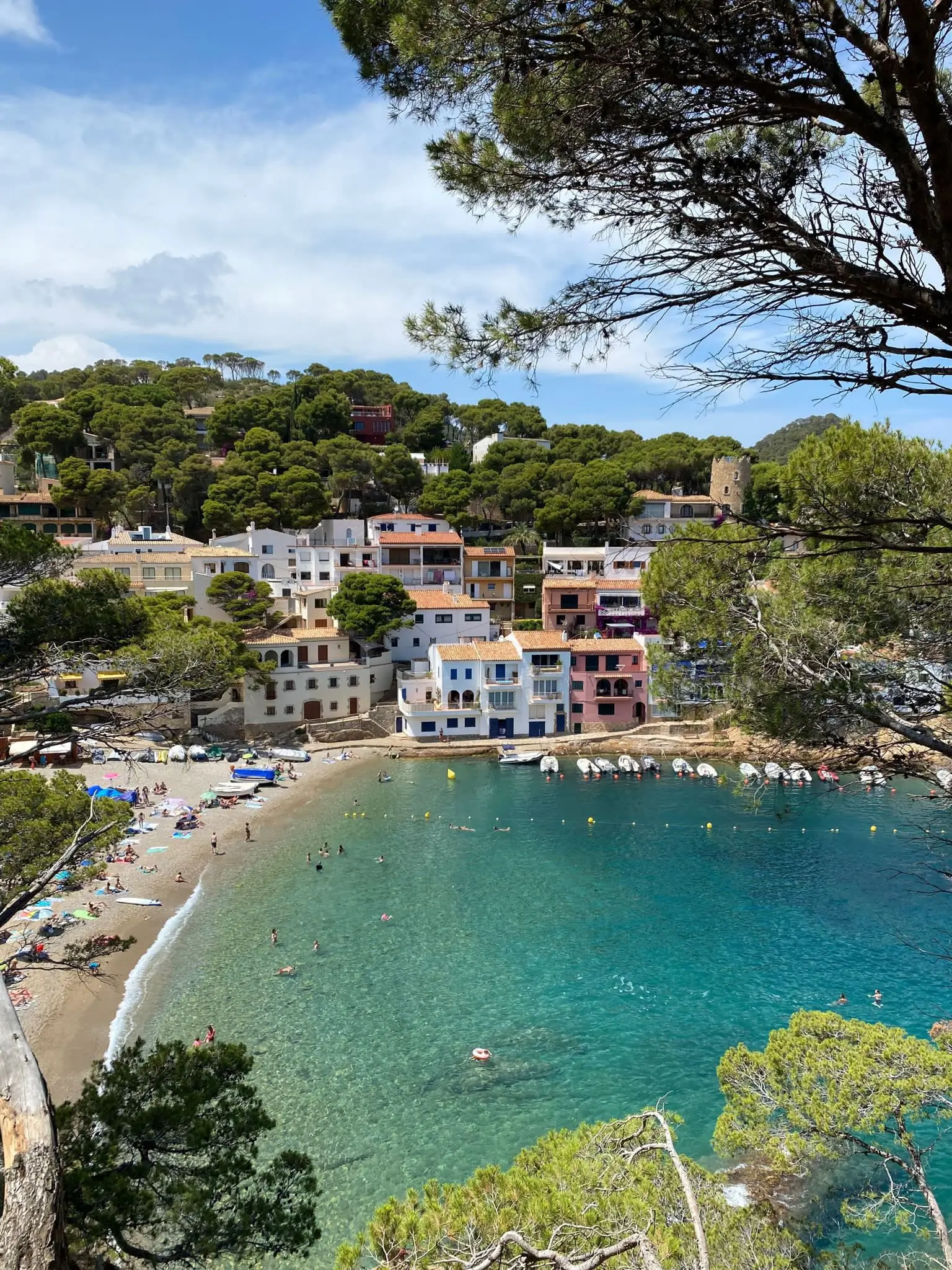
Costa Brava Without the Crowds: Peaceful Towns, Coastal Trails, and Honest Local Tips


